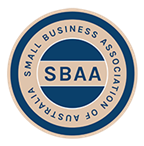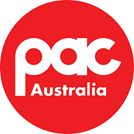Music licences for events
Music is the foundation of a concert performance and plays a key part of other events including festivals and comedy shows.
If you are putting on a concert, festival or other event you will almost certainly need licences from OneMusic.
For enquiries about Event licensing events@onemusic.com.au
Find out if your event is covered under the OneMusic local council licence (PDF).
We have recently consulted with the Events sector on some changes we’d like to bring to the market to harmonise rate structures and have released our final position papers for Ticketed Music Events, Eligible Temporary Music Events, General Entertainment Events, and Free Music Events.
You can read those papers here:
The commencement date referred to in these papers has now been moved to 1 January 2023.
- Ticketed Music Events and Eligible Temporary Music Event
- General Entertainment Events
- Ticketed Special Purpose Performances
- Ticketed Music Events & Eligible Temporary Music Events addendum


Which promoters are licensed under a Promoted Music Event Blanket Licence?
Is a tribute concert Dramatic Context?
If you are using music in a Dramatic Context at your event, a blanket licence from APRA or PPCA is not available. Dramatic Context means a presentation on the live stage that has a storyline and one or more narrators or characters.
Please be aware that biographical or tribute type performances that tell the story of an artist’s life will commonly be deemed to have a storyline and be Dramatic Context. Please refer to APRA AMCOS Music in a Dramatic Context information guide for more information.
Previous classification for the same or a similar show does NOT guarantee that Dramatic Context does not apply. Accordingly, APRA AMCOS notes that any financial or other investment in your show, including the booking of venues, ahead of you obtaining a licence for all the works is entirely at your own risk.
Do you wish to publicly perform the works of Bruce Rowland?
If your organisation wishes to publicly perform Bruce Rowland’s works in Australia in any context (other than by showing films) you will need to seek the appropriate clearances directly from Bruce Rowland’s representatives.
You can email bruce@rowland.net to seek a licence directly.
Do I need a licence to play music in public places?
If you play music protected by copyright out loud in a public place for a commercial purpose such as a shop, a gym or a bar you need permission or you need to purchase a music licence. Legally this music use is different to playing music at home or in your car. This is called public performance of music.
What is the cost of a music licence for businesses?
How can I legally play music in my business?
Your business can legally play music protected by Copyright by getting permission first. Permission can be from OneMusic Australia in the form of a licence for millions of songs in its catalogue, from the artists themselves for every song, through a background music supplier or other means. You need permission or a licence when your stream music in your business.
What happens if I don't take out a licence?
If you want to play and enjoy the use of virtually any commercially released music from anywhere around the world, you should immediately enter into a OneMusic Australia licence, because using OneMusic Australia’s music without a OneMusic Australia licence can constitute an infringement of our copyright which, if not rectified, may ultimately lead to legal action.
Of course, we will happily talk with you about your music licensing and certainly provide a reasonable time frame for you to take out a licence before escalating the matter any further.
But, if our music continues to be used without permission, then we will be left with no option but to enforce our rights on behalf of our members and affiliates, which could involve court proceedings. Such action may result in the business having to pay the licence fees as well as other damages and legal costs.
Over 95% of businesses and organisations that we deal with are readily compliant.
How much is a music licence?
Is it the performer or the venue that needs the licence?
OneMusic does not generally licence individual or group live performers such as bands and DJ's. It is the venue or the event organiser who needs to obtain a licence for public performance.
Performers may still need permission for copying
A performer may require licensing for any reproductions they are considering such as photocopying sheet music, videoing their performance, copying CDs onto a laptop.
DJ Alliance have signed an agreement with ARIA and AMCOS to cover their physical and digital copies of music. This agreement covers their members starting from 1 July 2019.
Outside this arrangement:
- Reproduction, Domestic Video Licence & Online queries
- ARIA Reproduction Licence queries
- PPCA Webcast licensing queries
OneMusic licenses performers who are part of a Community Music Group.
Why am I being asked to provide a setlist by the Promoter of an Event or Festival?
Whenever music is performed in public the songwriter and their publisher may be entitled to a payment or royalty. We need your setlist in order to pay the royalties to the rightsholders whose works were performed at this event. For certain events we collect setlists directly (rather than via a Performance Report) so that we can directly distribute the licence fees. These Directly Distributable Events are paid out at a different rate than other OneMusic licence payments and may attract higher licence fees.
How is this different from submitting a Performance Report?
Submitting a setlist directly to a Promoter or via the unique QR Code provided, is not the same as submitting a Performance Report (previously Live Performance Return or ‘LPR’). A Performance Report is an online form submitted to APRA AMCOS, which reports details of your live performances at venues in Australia and New Zealand. They generally cover ‘non-promoted’ shows such as a regular gig at a pub, bar or restaurant. Performance Reports must be submitted by logging into the member portal on the APRA AMCOS website or via the Member app. The events we are requesting your setlist for, however, fall under what we call a Distributable Event which are usually large-scale promoted concerts/festivals/events where APRA licenses the event directly with the Promoter.
What’s the benefit of submitting a setlist that has been requested?
When do I need to provide a setlist?
If a Promoter or event organiser requests that you provide a setlist, please do! They are requesting this so we can distribute the fee directly to the works that you performed. Otherwise, you should submit a Performance Report.
If in doubt, submit a Performance Report!
If you haven’t been asked to provide a setlist, by the Promoter or by an APRA staff member, please submit a Performance Report for these events. This ensures you are paid for all your performances in Australia and New Zealand.
What type of Events are Paid Directly via Setlist Submissions?
Major Festivals, Tours Promoted by a National Event Promoter and other Promoted Events are directly distributed. Make sure you provide the Promoter with the setlist for the tour (this can be one setlist for the entire tour or can be a different setlist for each night). Other larger events and organisations also submit setlist for direct payments such as the State Symphony orchestras. If you are asked for a setlist by a promoter or event organiser, it probably means the event will be directly distributed.
